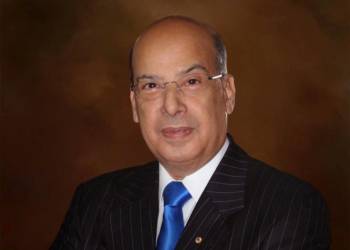By Sir Ronald Sanders
The outcome of the US Presidential elections will reverberate globally, impacting many nations. Every government, including those in the Caribbean, has begun to weigh which candidate’s victory might better serve their interests.
The latest event in the campaign circus features Donald Trump, the Republican nominee, ridiculing the presumptive Democratic nominee, Vice President Kamala Harris, over her racial origin. Trump has questioned Harris’s race, saying, “She was always of Indian heritage, and she was only promoting Indian heritage. I didn’t know she was Black until a number of years ago, when she happened to turn Black.”
Trump made this remark at an appearance at the National Association of Black Journalists, where he was interviewed live by a Black journalist. The remark was clearly intended to dilute support for Harris among Black journalists.
Historically, race has always been a significant factor in US politics, dating back to 1863 when Abraham Lincoln issued the Emancipation Proclamation, which declared that all enslaved people were to be set free. Throughout US history, the Civil Rights movement has fought for Black people’s rights, including the right to vote and hold office.
The election of Barack Obama as the “first Black president” of the US overcame significant barriers. However, for many White Americans, the issue of Black people in high office became more pronounced. Trump exploited this ‘fear’ of Black people in political life against Obama by emphasizing his Blackness while ignoring his White heritage. Now, with rising confidence among Black people concerning their legitimate place in all aspects of US society and their recognition of the power of their vote, Trump is using the race card differently against Harris. He is seeking to portray her as “Indian” and not “Black” to diminish her standing with Black voters.
Furthermore, Harris has come under the spotlight of Trump because he and his political disciples successfully managed to engineer the withdrawal of the previous presumptive nominee, President Joe Biden, on the basis that he is old and feeble. Biden was 81 when he decided to withdraw as a candidate for election; Trump was 78 – a mere three years younger than Biden.
Remarkably, having eliminated Biden, Trump is now the oldest presidential candidate in US history, and the question of being “too old” has disappeared from his campaign. Given a younger and nimbler opponent, Trump is employing race against Harris by questioning her Blackness and emphasizing her Indianness.
Nonetheless, with the strong support she has already received from the hierarchy of the Democratic Party, she is certain to be the party’s nominee for the presidential election in November.
Fear has also been used as a political tool by both sides, and it will likely become the dominant theme in the weeks and days ahead. Trump is portraying Harris as a ‘socialist,’ claiming that she will encourage immigration and refugees who, according to him, are for the most part criminals, rapists, and drug traffickers. Immigrants and refugees are being painted as a serious threat to US society generally. He has added that immigrants are taking ‘Black jobs.’ Intrinsic to this argument is that Black people are mostly employed in low-skill or labouring jobs that immigrants and refugees are grabbing, dislocating Black people.
An underlying theme of the Trump campaign is that the US is not ready for a woman as President and certainly not for a Black woman. This premise is being developed into another ‘fear’ in the campaign.
On the other side, Harris is also using fear as a tool against Trump. She has cast him as a villain who is a convicted felon, a woman abuser, a fraudster, and a tax dodger, undeserving of the US Presidency. Drawing on her background as a prosecutor, she has declared that she knows Trump’s “type.”
All of this is par for the political course. The factors are the same in politics globally.
In the Caribbean, governments are watching this race, trying to determine which of the two candidates would be best for them. They see a surface difference between a woman of Indian-Jamaican heritage, likely to continue policies of Obama and Biden. However, there was no great benefit for the region from either Obama or Biden. While the administrations of both men acknowledged the fundamental challenges confronting the region, the steps that were taken did not transform their capacity to overcome these challenges. Those who had high expectations of Obama because he was “Black” learned that, rightly, he was the President of the US, concerned with his own country.
The same situation will prevail if Harris wins the presidency. The fact of her Jamaican and Indian parents will not cause her to prioritize either Jamaica (and by extension, the Caribbean) or India. She is an American, and if elected as president, will focus her attention on US national interests at home and abroad.
The Caribbean has also had experience with Trump as president. His present presidential campaign does not suggest that his isolationist posture will change or that he has any interest in the Caribbean, which, apart from Guyana and Suriname, holds little attraction to the US either as a market or as a location for resources such as oil and gas. Beyond curbing immigration and refugees, principally from Haiti, and restricting the flow of illegal drugs through the region, the previous attitude toward the region is unlikely to change.
For these reasons, the Caribbean should not believe that it has a stake in the US presidential fight. Who is elected US president is a matter for the voters of the US. Once a new administration is in place, the region will have to work to command as much attention as it can in order to address its concerns on the practical basis of shared values and mutual concerns. The race or party affiliation of the president will be of no consequence.





